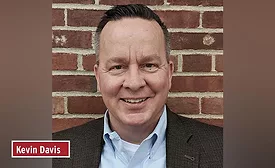Management
Reducing the Risks Posed by Artificial Intelligence
To thrive in the new era, enterprise security needs to reduce the risks posed by AI and make the most of the opportunities it offers.
November 11, 2019
Education & Training
The FTC-Facebook Settlement: A Major Shift in U.S. Privacy Regulation
November 8, 2019
Defending Against Ransomware: The Growth of Targeted Attacks
Ransomware attacks are getting bolder and affect enterprises of all sizes.
November 7, 2019
Sign-up to receive top management & result-driven techniques in the industry.
Join over 20,000+ industry leaders who receive our premium content.
SIGN UP TODAY!Copyright ©2026. All Rights Reserved BNP Media.
Design, CMS, Hosting & Web Development :: ePublishing















